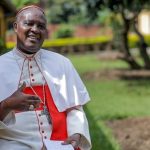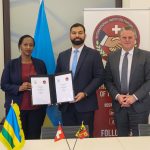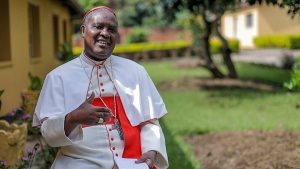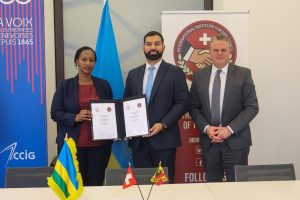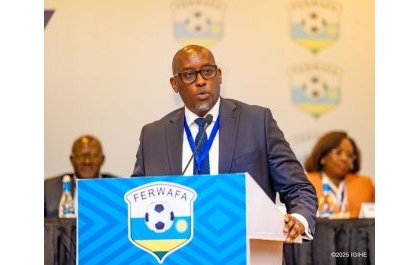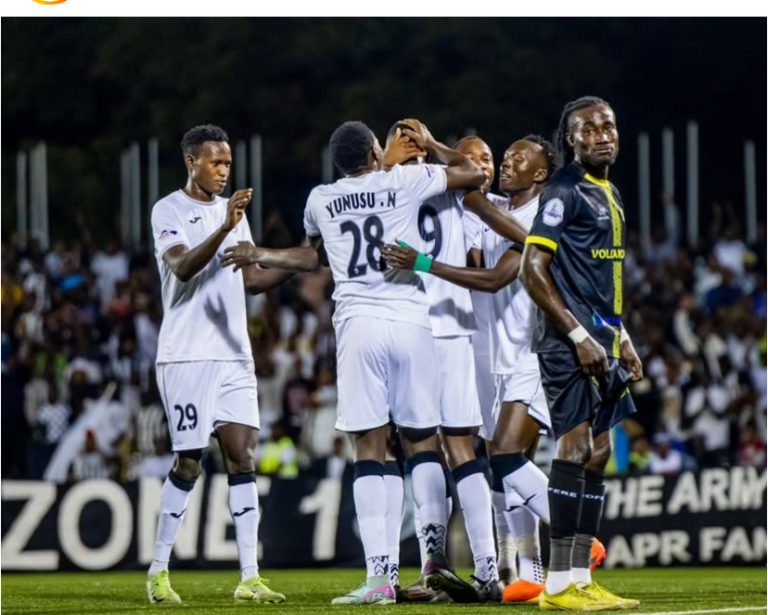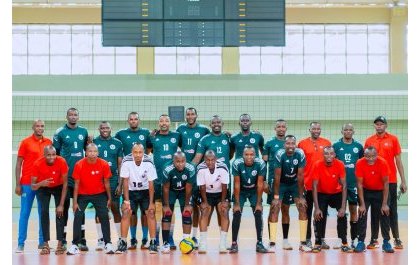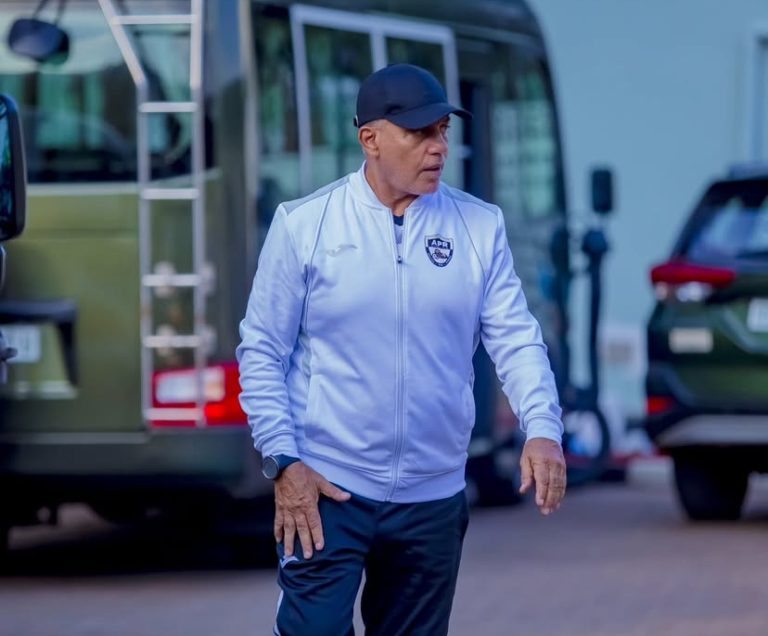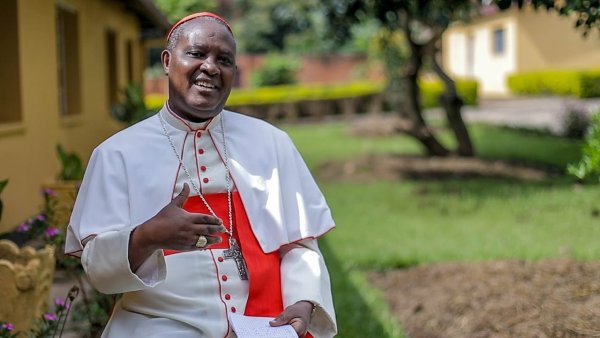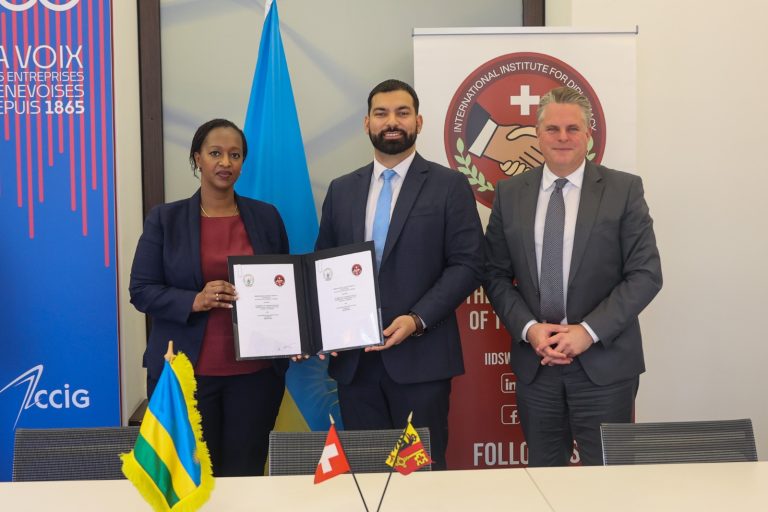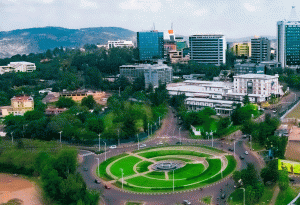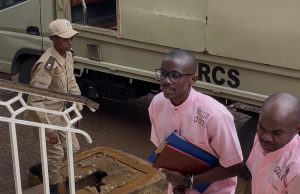Only two weeks after being elected President of the Rwanda Football Federation (FERWAFA), Shema Fabrice has already begun showing signs of change.
When he submitted his candidacy in July, there was little doubt that he was the frontrunner to lead Rwanda’s football governing body. The main question was how he would steer FERWAFA, an institution often criticized for poor decision-making rather than lack of resources. Many also viewed him as a strong supporter of AS Kigali, given his efforts to resolve that club’s persistent financial challenges.
In his short time at the helm, Shema has introduced three major initiatives that have drawn public attention—steps that either had never been attempted before or would typically have taken much longer.
First, he increased the number of foreign players allowed in the Rwandan Premier League from six to eight. While some remain skeptical about the long-term benefits, the move reflects long-standing demands from clubs and is expected to improve competitiveness, even though it may limit opportunities for local talent to break through.
Second, he moved to improve the welfare of referees, particularly in the top division. For years, poor pay and lack of professional incentives have been blamed for biased officiating and low standards.
Finally, Shema addressed long-standing arrears owed to players and coaches of the national team, the Amavubi. This step, done in coordination with the Ministry of Sports, reflects a new spirit of accountability and collaboration rather than finger-pointing and mistrust.
While these reforms mark a promising start, IGIHE has identified five key priorities that Shema must urgently address. If achieved, they would transform him into the leader who put FERWAFA back on track, restoring credibility to an institution long plagued by internal crises and public criticism.
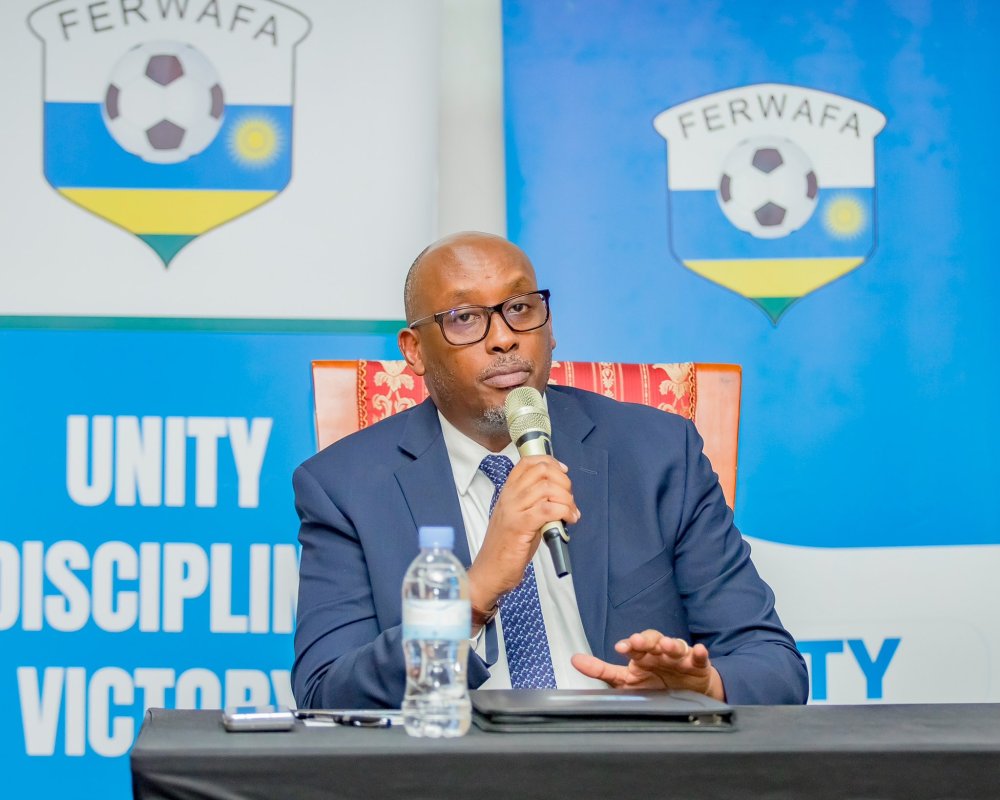
“Shema Fabrice began implementing changes just two weeks after being elected as the President of the Rwanda Football Federation (FERWAFA).”
Streamlining FERWAFA Staff and Promoting Professionalism
One of the reasons FERWAFA has long suffered from a poor image is unproductive staff and conflicting interests. Some employees have remained for years without delivering results, often working in favor of particular clubs or individuals. This has fostered mistrust, backstabbing, and endless disputes within the federation.
By appointing a new Secretary General and retaining only a handful of committee members from the previous administration, Shema has signaled his commitment to reform. He must now decide whether to retain or release staff who undermine his vision of building a clean, professional federation.
As he said during the handover: “I do not believe in half-hearted work. I believe in a day where you go home and say, today we accomplished something. For those unwilling to work, we will add pressure until they run.”
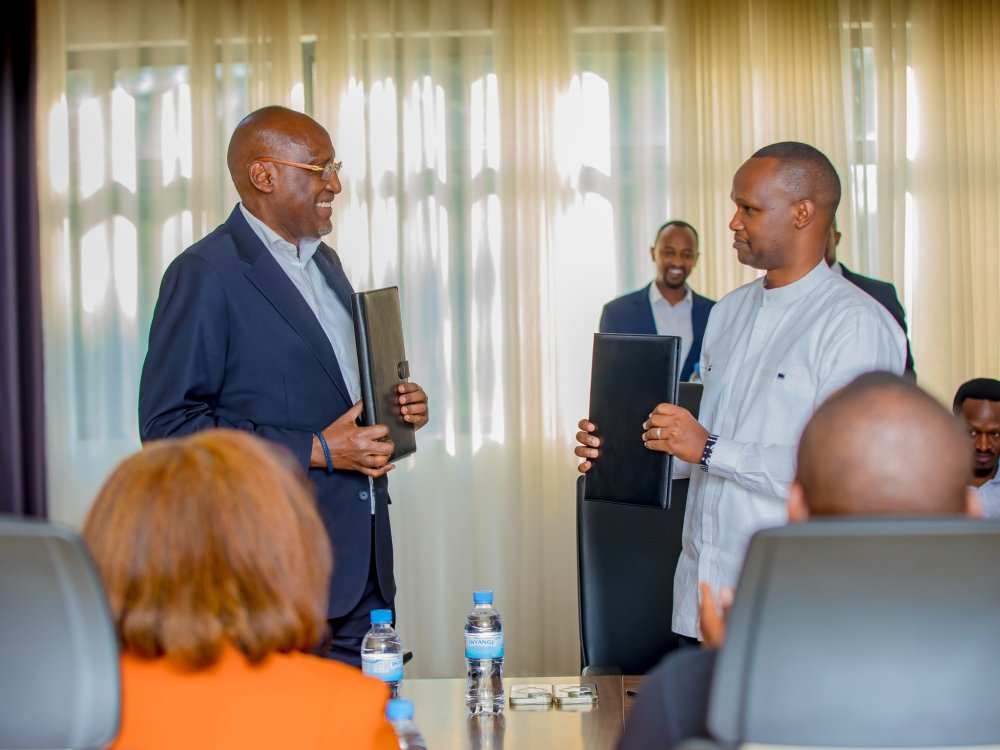
“Shema Fabrice’s four-year term began with changes in the secretariat, as the Second Vice President in charge of technical affairs, Richard Mugisha, was appointed Acting Secretary General, replacing Adolphe Kalisa ‘Camarade,’ who had served in the position for two years.”
Building a Federation Governed by Rules and Good Governance
During his campaign under the motto “One Team, One Dream”, Shema pledged reforms anchored on eight pillars, including professionalism, good governance, and financial sustainability.
In 50 years, FERWAFA has had 16 presidents, five of them in the past decade—a sign of instability and the immense pressure on leaders. Some resigned claiming they were overwhelmed, while others failed to deliver significant change.
For Shema to succeed, he must uphold the rule of law and avoid emotional or biased decision-making. Clear boundaries must be maintained between the powers of the President, the Executive Committee, and the Secretariat. If all members feel treated fairly, Shema will gain their support instead of resistance.
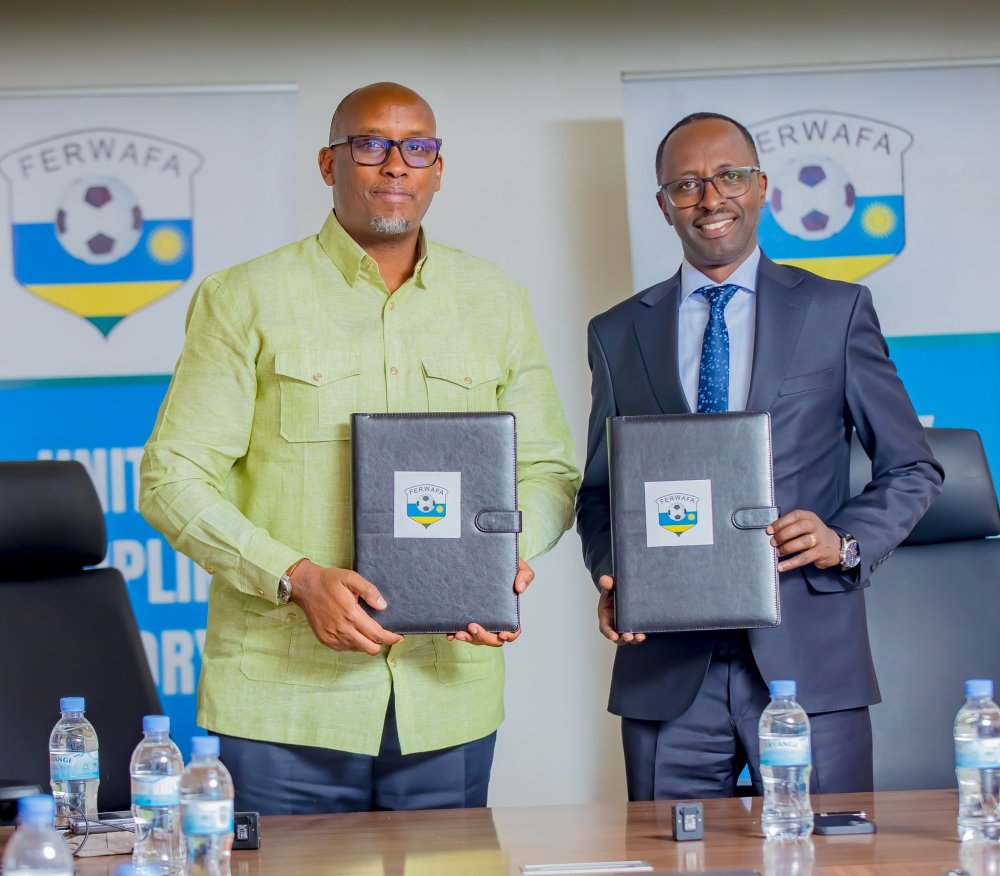
“Shema Fabrice (left) became the 16th President of FERWAFA, and the fifth since 2014.”
Fighting Match-Fixing and Raising the Standard of Competitions
Match-fixing has become an open secret in Rwandan football, with clubs accused of exchanging points to avoid relegation or to secure titles. Biased refereeing, sometimes influenced by clubs with support from within FERWAFA, has also been a persistent problem.
Though tackling this deeply entrenched issue may seem like climbing a mountain, it could define Shema’s legacy. If he manages to stamp it out, he would be celebrated as the leader who restored fairness and competitiveness to Rwandan football.
Strengthening the National Team’s Performance
The performance of Rwanda’s national teams, particularly the Amavubi, remains the most visible measure of FERWAFA’s success. Past leaders are often remembered for their teams’ achievements—such as qualifying for the 2004 Africa Cup of Nations or the 2011 FIFA U-17 World Cup.
Currently, the Amavubi have only one win in their last six games. Shema personally accompanied the team in Nigeria and South Africa, celebrating their victory against Zimbabwe by offering quick financial rewards—a gesture that boosted morale.
With World Cup 2026 qualification hopes slim, attention must shift to preparing for the 2027 Africa Cup of Nations in East Africa. This will require better scouting, engaging eligible players abroad, and ensuring merit-based selection rather than favoritism.
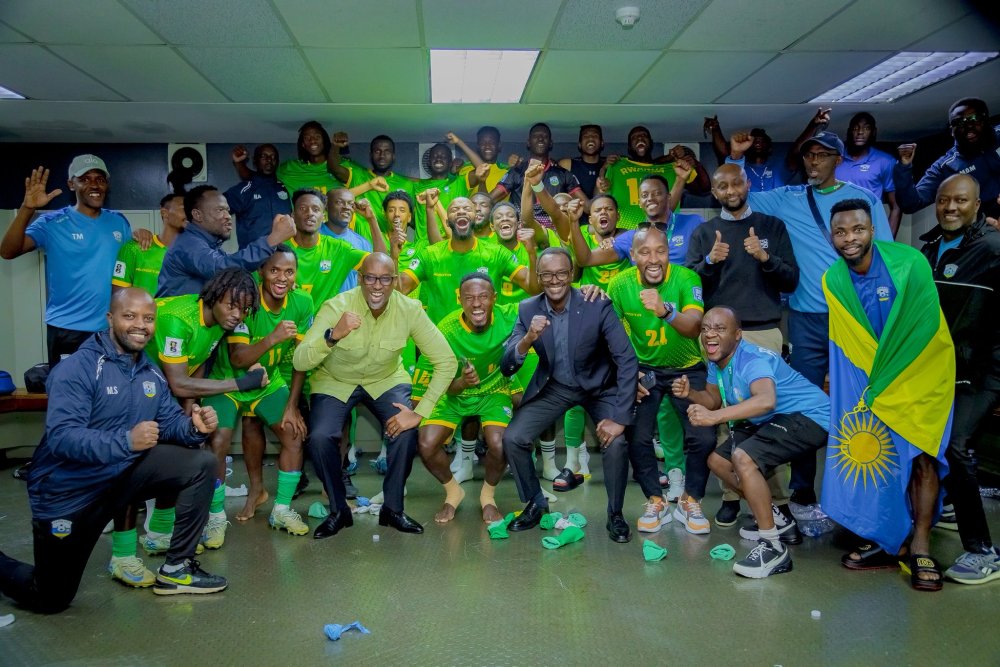
FERWAFA and the Ministry of Sports should begin strategizing on how the Amavubi can perform well in the journey to qualify for the 2027 Africa Cup of Nations, which will take place in East Africa. At the same time, other national teams should also be supported to achieve success in their respective competitions.
Building a Sustainable Football Economy and Youth Development
Football must become a viable livelihood for those involved. To this end, Shema has promised increased prize money: Rwf 484 million will be allocated to reward top performers in the Premier League and lower divisions. However, questions remain about funding sources, underscoring the need for new sponsors.
At the youth level, age-cheating continues to undermine competitions. Though U-17 and U-20 leagues have been launched, many players exceed the age limits, limiting progress. True development requires strict regulation, consistent investment, and ensuring Rwandan youth teams participate regularly in international tournaments.
Shema has pledged to reinvest $50,000 annually from CAF into youth competitions and channel revenue from foreign player registrations toward development. His challenge is to build a transparent and results-driven system that nurtures real talent for the future.
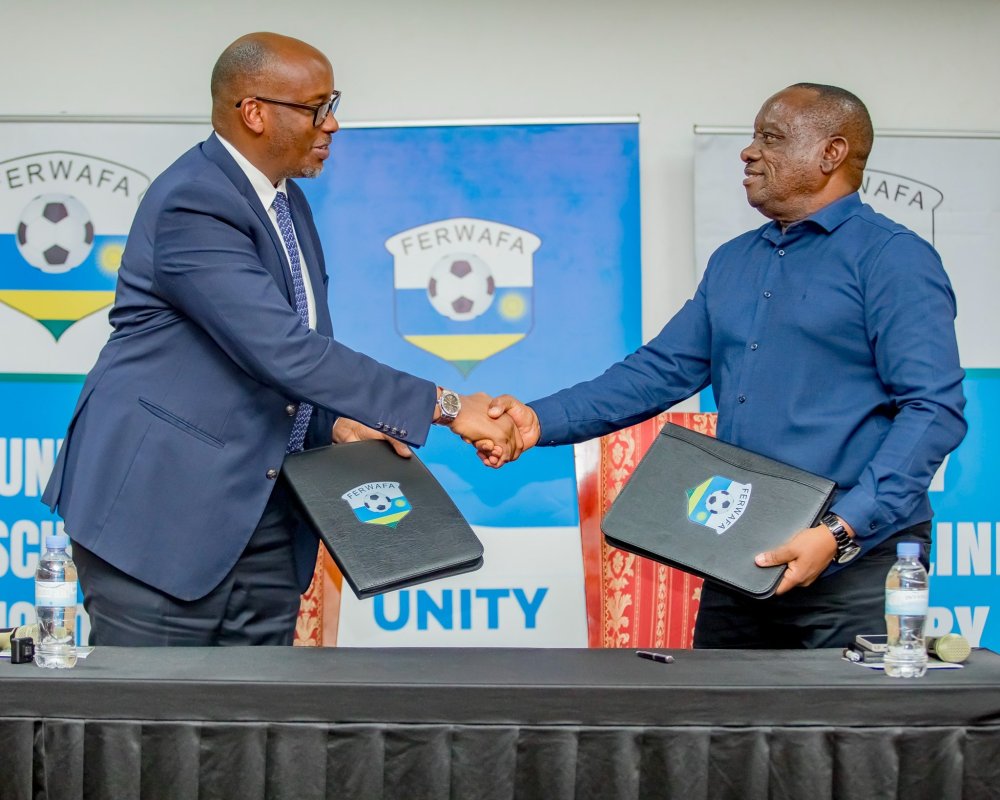
FERWAFA President, Shema Ngoga Fabrice (left), and Rwanda Premier League Chairman, Mudaheranwa Hadji Yussuf (right), after unveiling the regulations that will govern the 2025/26 season in September.
Shema Fabrice has begun his four-year term with bold reforms. But his real test lies in tackling deep-rooted challenges—staff inefficiency, governance flaws, match-fixing, poor national team results, weak football economy, and fake youth development.
If he succeeds, he will not only clear FERWAFA’s tainted reputation but also be remembered as the leader who rebuilt Rwandan football on solid foundations.
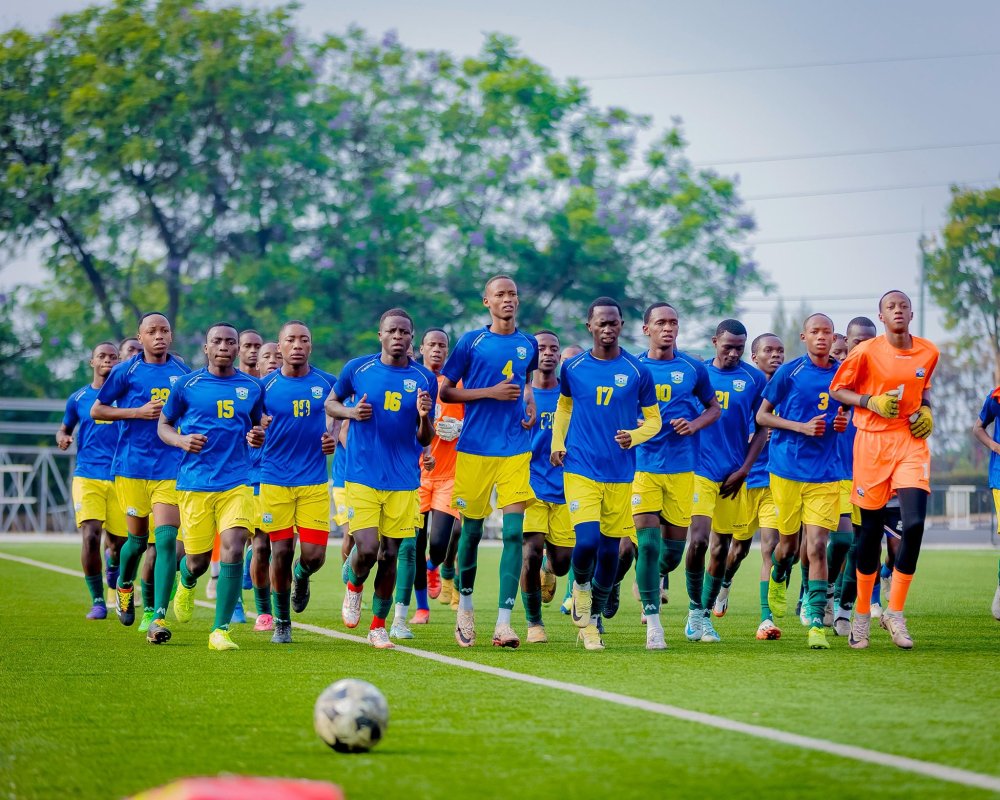
Youth competitions are the main source of players who go on to represent national teams at different levels.
Author: Justinmind HARERIMANA
